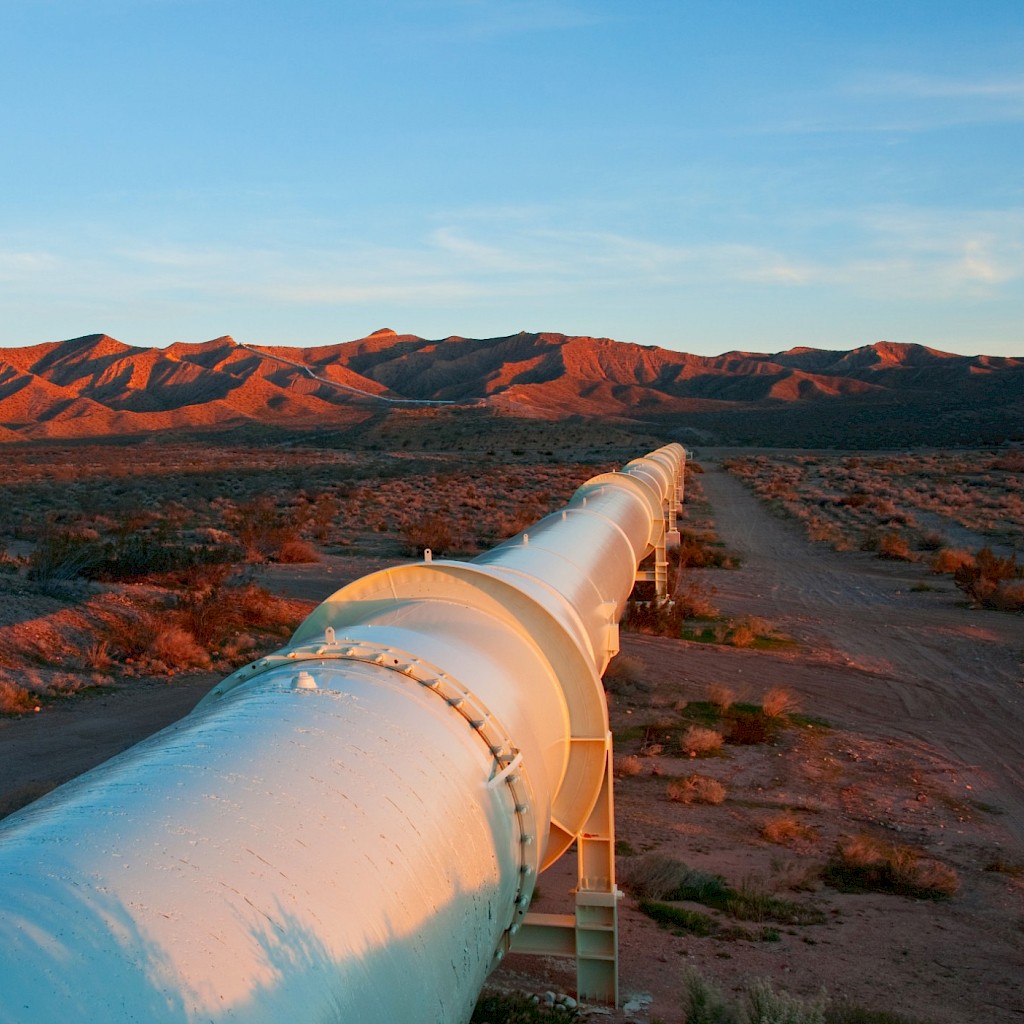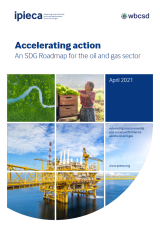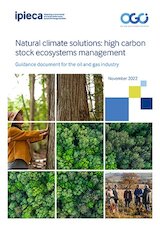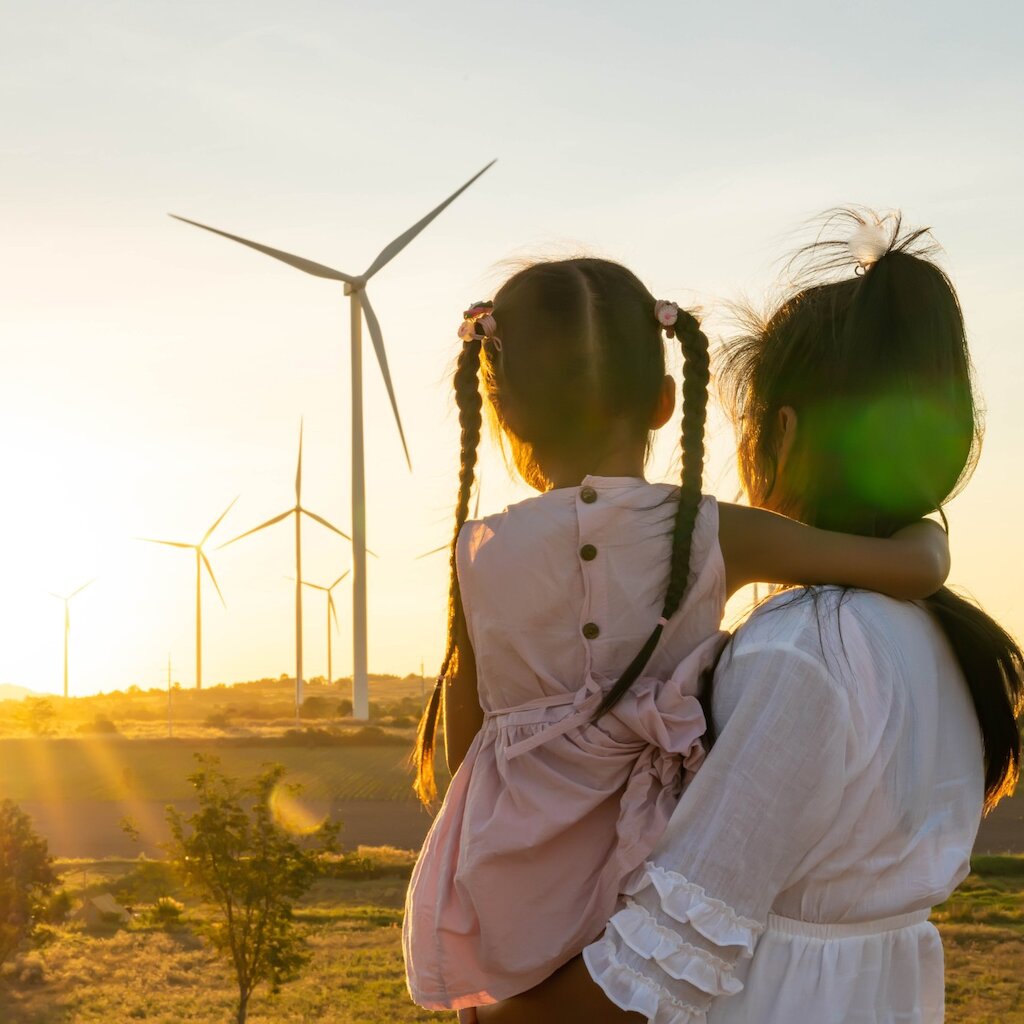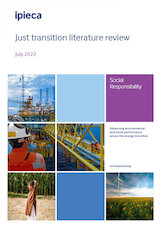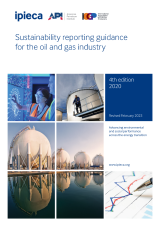Our publications are free to download. If you wish to obtain hard copies, please contact the Secretariat.
Featured resources
For five decades, Ipieca has convened members and stakeholders to advance the industry’s environmental and social performance, supporting key United Nations conventions through operational good practice.
This is the third progress report, highlighting how Ipieca and its members are implementing the Ipieca-WBCSD SDG Roadmap.
This brochure provides context and information on the Ipieca Principles, their implementation and governance, and includes a toolkit of practical examples, useful resources and reference points to help members support the principles.
The brochure provides an overview of Ipieca, including our vision, the breadth of our activities, benefits of becoming a member, types of membership, current membership, and CEO testimonials.
This guide provides a digital list of Ipieca resources to support oil and gas, and alternative energy industry practitioners to advance performance across climate, nature, people and sustainability.
This 3-part webinar series aims to deepen understanding around the challenges and solutions to the increased demand for mining raw materials for the energy transition, particularly in wind and solar energy projects.
Oil and gas operations take place in many countries where the quality of medical services and specialities differs. It is therefore important for a company to assess local health facilities to ensure that they can provide optimal medical care for their workers.
This guide provides a snapshot of Ipieca groups, covering each group's purpose, selected highlights, 2024 focus, and workstreams.
This video provides an introduction to human rights, including the key elements of the UN Guiding Principles and why human rights are important for the energy sector. Available with English or Spanish subtitles.
This document provides a comprehensive review of existing good practices that address environmental and social risks across the supply chain, and carbon footprint management across the project life cycle of onshore and offshore wind and solar PV technologies.
Health leading performance indicators data from Ipieca and IOGP members for 2022.
The annual Ipieca sustainability reporting survey identifies trends in the sustainability reporting practices of Ipieca member companies. These are the results for 2023.
This industry-specific document provides guidance on the prevention of food- and water-related diseases.
The Ipieca-IOGP compendium provides an introduction to energy efficiency measures for oil and gas facilities, and aims to raise awareness and uptake of such technologies and practices across the industry.
This briefing builds a shared understanding of carbon-compensated products, their role in supporting net-zero ambitions and the energy transition, and explores good practice in using them.
The briefing highlights the role of oil and gas in supporting a just transition, the regional complexities of a net-zero future and the need for collaboration to scale up energy transition enablers.
This glossary was developed to support the oil and gas industry and other stakeholders in the use of consistent terminology around net-zero emissions.
Ipieca, together with IOGP and the Oil and Gas Climate Initiative (OGCI), have released a recommended practices guide to help operators select and deploy methane detection and quantification technologies.
An update to the compendium, first published in 2020, is now available. It aims to support renewable energy developers to enhance the environmental and social performance of their projects and operations.
An Incident Management System (IMS) is essential to optimizing response times and efficiency, providing clarity in command and control, improving resource coordination and communications, and facilitating the cooperation and integration of responding organizations.
This document is aimed at those persons responsible for ensuring that oil spill contingency plans are practised and verified, providing guidance on constructing an exercise programme that is suitable for meeting an organization’s or facility’s requirements.
This document identifies the principal health and safety issues when an oil spill occurs, their degree of severity and the practical steps to minimize the impact of the spill.
Indicators for the health performance of the industry are a necessary part of effective health management and the promotion of improvements in health performance.
Ipieca and IOGP members share their companies' experiences in developing and utilising BAPs.
Ipieca is pleased to launch its labour rights training, developed with the contribution of Building Responsibly and hosted on the Supply Chain Sustainability School’s e-learning platform.
This report provides an overview of key messages from the two stakeholder panels exploring how Ipieca can support its members to lead the industry’s contribution to a sustainable energy transition, and how Ipieca can provide a trusted/safe channel for dialogue and collaboration with key stakeholders.
This panel session compared the opportunities and challenges of initiatives from the International Sustainability Standards Board (ISSB), the US Securities Exchange Commission (SEC) and the European Financial Reporting Advisory Group (EFRAG).
Ipieca is pleased to host a webinar with the World Bank's Global Gas Flaring Reduction Partnership (GGFR) on its 2023 Global Gas Flaring Tracker Report.
Twelve e-learning modules to support the industry and its supply chain to improve awareness and management of labour rights issues.
The theme of the 2022 Annual Review is ‘Leading the industry through a sustainable energy transition’.
